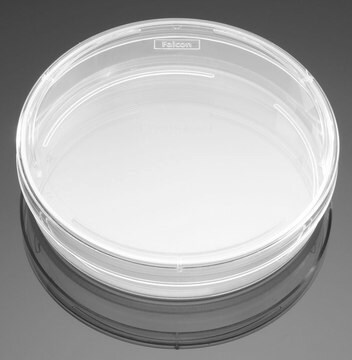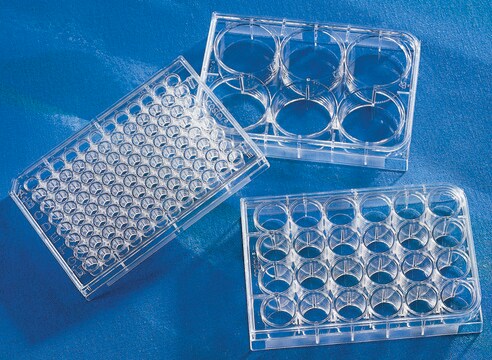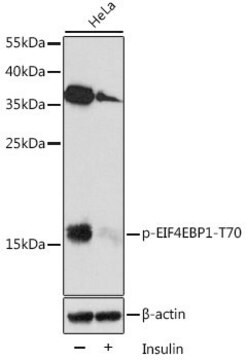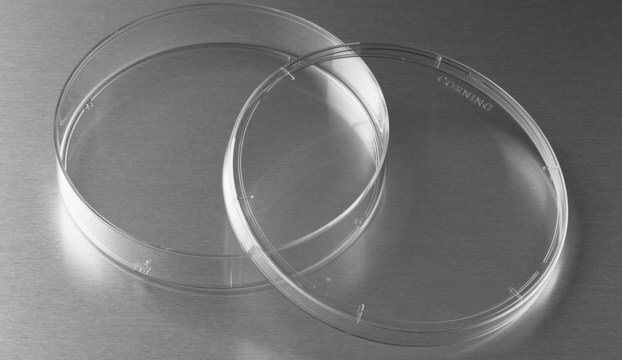SCM016
Mesenchymal Stem Cell Freezing Medium (1x)
The Mesenchymal Stem Cell Freezing Medium (1x) has been optimized & validated for Stem cell culture. This medium is available in a 50ml format.
About This Item
Recommended Products
Quality Level
form
liquid
manufacturer/tradename
Chemicon®
technique(s)
cell culture | stem cell: suitable
input
sample type mesenchymal stem cell(s)
shipped in
dry ice
Application
2. Cells to be frozen should be in late log phase growth.
3. Monolayers will need to be dissociated. After dissociation, cells are resuspended in Mesenchymal Stem Cell Expansion Medium (Cat. No. SCM015) and counted to determine viability and number.
4. Centrifuge cells at 300 x g for 3 min. Remove the medium above the pellet.
5. Resuspend the cells in Mesenchymall Stem Cell Freezing Medium at a concentration of ~4 x 106 cells/mL. Freeze 1 mL of cells/vial. After the cells have been resuspended and aliquoted into appropriate cryogenic storage vials, they can be placed in a freezing container and the normal freeze down procedure should be started within five minutes.
6. Cells must be stored at or below -80°C. For long term storage the cells should be stored in ultra-low temperature freezer (-150°C), or in liquid nitrogen (-196°C).
7. Thawing of cryopreserved cells should be as follows:
a. Do not thaw the cells until the recommended medium and appropriate plasticware and/or glassware are on hand.
b. Thaw cells quickly in a 37°C water bath. Important: Do not vortex the cells.
c. Sterilize vial by rinsing with 70% ethanol.
d. In a laminar flow hood, use a 1 or 2 mL pipette to transfer the cells to a sterile 15 mL conical tube. Be careful to not introduce any bubbles during the transfer process.
e. Using a 10 mL pipette, slowly add dropwise 9 mL of Mesenchymal Stem Cell Expansion Medium (pre-warmed at 37°C) to the 15 mL conical tube. IMPORTANT: Do not add the whole volume of medium at once to the cells. This may result in decreased cell viability due to osmotic shock.
f. Gently mix the cell suspension by slow pipeting up and down twice. Be careful to not introduce any bubbles. IMPORTANT: Do not vortex the cells.
g. Centrifuge the tube at 300 x g for 2-3 minutes to pellet the cells.
h. Decant as much of the supernatant as possible
i. Resuspend the cells in a total volume of 10 mL of Mesenchymal Stem Cell Expansion Medium (pre-warmed at 37°C).
j. Plate the cell mixture onto a 10-cm tissue culture plate.
k. Incubate the cells at 37°C in a 5% CO2 humidified incubator.
l. The next day, exchange the medium with fresh Mesenchymal Stem Cell Expansion Medium (pre-warmed to 37°C). Exchange with fresh medium every two to three days thereafter.
m. When the cells are approximately 80% confluent, they can be dissociated with Accutase® (Cat. No. SCR005) and passaged or alternatively frozen for later use.
Physical form
Storage and Stability
Legal Information
Disclaimer
Storage Class Code
10 - Combustible liquids
WGK
WGK 1
Flash Point(F)
Not applicable
Flash Point(C)
Not applicable
Certificates of Analysis (COA)
Search for Certificates of Analysis (COA) by entering the products Lot/Batch Number. Lot and Batch Numbers can be found on a product’s label following the words ‘Lot’ or ‘Batch’.
Already Own This Product?
Find documentation for the products that you have recently purchased in the Document Library.
Articles
Development of a novel serum-free and xeno-free human mesenchymal stem cell (MSC) osteocyte differentiation media.
PLTMax® Human Platelet Lysate (hPL) is a superior serum-free and xeno-free media supplement alternative to fetal bovine serum (FBS) for human mesenchymal stem cell (MSC) cultures.
Frequently asked questions about mesenchymal stem cells including MSC derivation, expansion, differentiation and allogenic stem cell therapy.
Protocols
Information about mesenchyme, specifically mesenchymal stem cell procotols. Step-by-step cell culture protocols for mesenchymal stem cell (MSC) isolation, expansion and differentiation.
Our team of scientists has experience in all areas of research including Life Science, Material Science, Chemical Synthesis, Chromatography, Analytical and many others.
Contact Technical Service







